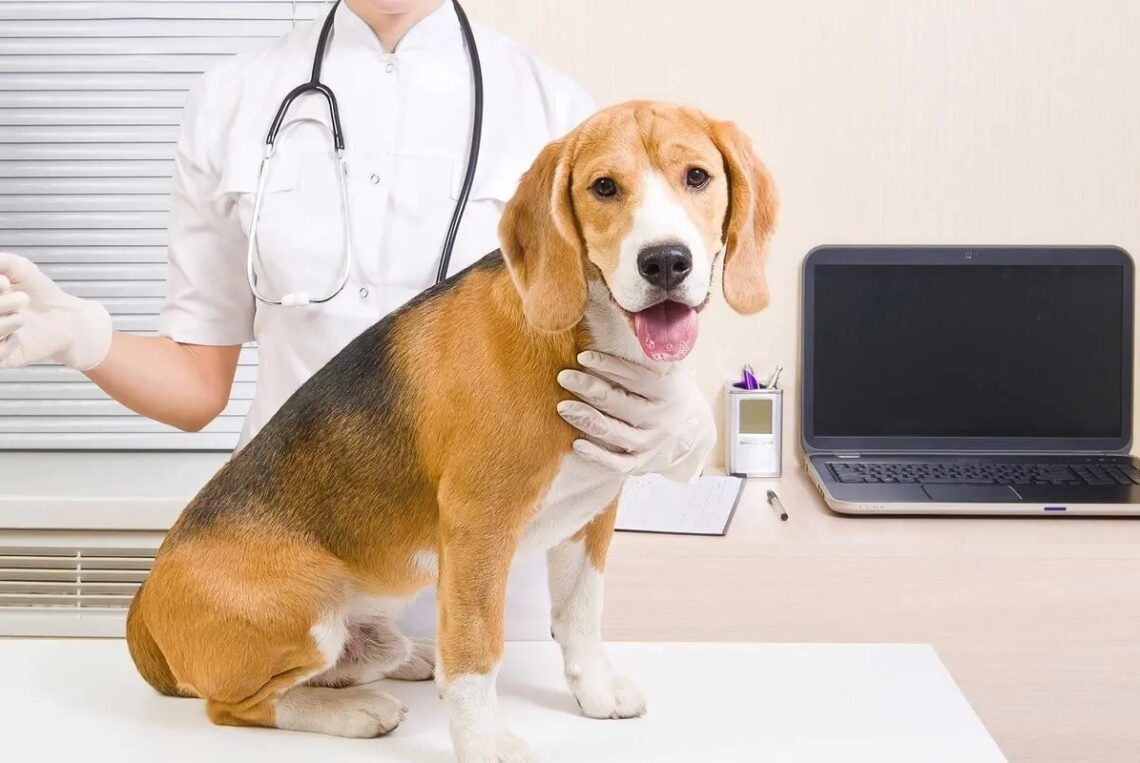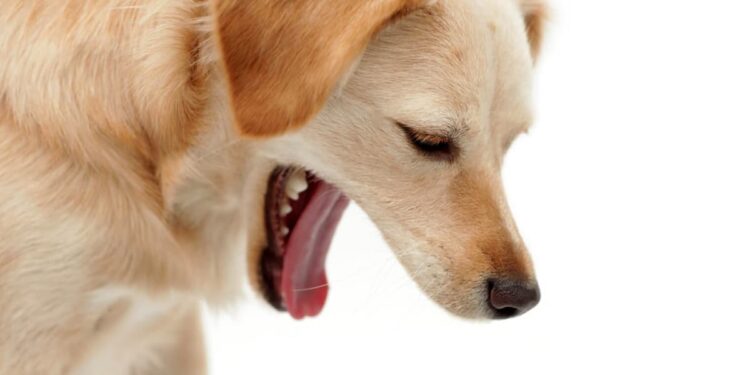Do you hear your dog coughing? Don’t worry, many of the causes of cough in dogs are treatable. We explain the causes and remedies to follow when your dog has a cough.
Like humans, dogs cough to get rid of dust, germs, and other substances they breathe. Dogs smell and drink everywhere and because of this, bacteria and viruses spread rapidly from dog to dog. Coughing in dogs sets off alarm bells in most dog owners. Canine cough can have many causes, some of which are potentially dangerous and others less so. Here’s what you need to know about the causes of cough in dogs and what you can do about it.
Why Do Dogs Cough?

Dogs explore the world with their nose and, occasionally, their mouths. The dog comes into contact with all sorts of things and all of these can cause a cough, which makes it difficult to determine if your dog’s cough is severe or is simply clearing his throat. An occasional cough can be a normal occurrence in the dog and is not a cause for concern. Repeated coughing, on the other hand, could be a sign of a more serious problem.
Common Causes Of Cough In Dogs
Kennel Cough
Deep, dry canine cough. Kennel cough is a highly contagious disease caused by a bacterium or virus. Normally, it causes only mild discomfort but can descend into the lungs causing severe problems such as pneumonia or chronic bronchitis. Dogs can catch kennel cough in dog areas, dog boarding houses, and any other places where dogs congregate. Usually, a dog with this type of cough will recover within two to three weeks. During this time, you should keep him away from other dogs to reduce the chance of contagion.
On A leash
When the dog pulls on the leash and the collar puts pressure on the trachea, it causes a cough that is common and not worrying. While this is a common problem, you may want to consider leash training or prefer the harness to avoid damage to the dog’s neck or windpipe.
Excitement Or Anxiety
When dogs are excited or anxious they may cough. This most commonly occurs in small dog breeds and in this case, the cough quickly subsides once the dog has calmed down.
Lung Problems
A wet cough could be a symptom of an airway or lung problem. These sounds indicate that there may be fluid in your dog’s lungs. Unlike other coughs, breathing will be labored even when the dog is not coughing. This requires immediate veterinary consultation. Pneumonia usually affects dogs with undeveloped or weakened immune systems, both puppy dogs and older dogs.
Tracheitis Issues
Chihuahua and Cavalier king are the dog breeds at greatest risk of tracheal collapse. One of the symptoms of tracheal collapse is a cough with a very shrill sound. Obese dogs have a higher risk of developing tracheal collapse.
Heart disease
There are many types of heart disease in dogs. When the heart is not functioning properly as a pump, fluid can begin to build up in the lungs. Dog breeds that are prone to heart disease, such as the Cavalier King, may start coughing as heart disease progresses. This type of cough mainly occurs when the dog is sleeping or lying down. In this case, be sure to call your vet as soon as possible. Cough related to heart problems often develops in older dogs. By having a less effective immune system, an older dog is more prone to heart disease than younger dogs. But how to recognize it? Cardiac cough in older dogs occurs when the dog has difficulty breathing even when not under exertion, faints, or has a swollen abdomen.
Dog Cough Remedies

Cough in dogs is generally treatable. The recommended remedy in all cases of cough previously mentioned is to call your trusted veterinarian. However, before your vet can treat your dog’s cough, he must diagnose the underlying cause of the cough. Your vet will perform a physical exam, listening to your dog’s heart and lungs, taking your dog’s temperature, and running diagnostic tests, to determine what is causing his discomfort. Once the underlying cause has been found, the vet will work out a treatment specific to your dog’s needs.
When Should You Call Your Dog’S Cough Vet?
If your dog is coughing violently, you need to call the vet. Many of the causes of dog cough are treatable, but all require medical attention. The sooner you take your dog to a vet, the sooner your dog will recover. Specifically, you should call your vet when :
- the cough gets worse over time or is continuous
- your dog has a loss of appetite or does not appear to be well
- your dog coughs up blood
- your dog has difficulty breathing or a faster breathing rate
Read More: Maltipoo Black And White




